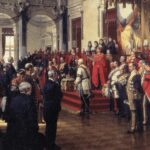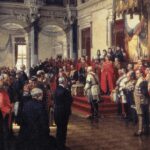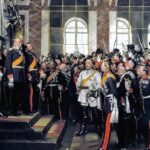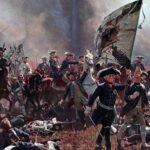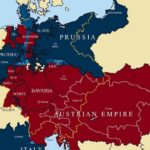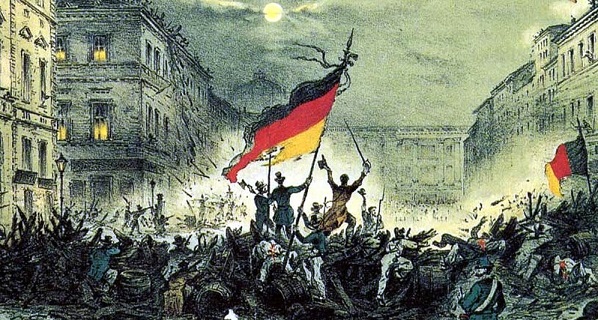
In 1848, the streets of Europe erupted in protest. From Paris to Vienna, from Milan to Berlin, people demanded a new order – one defined by freedom, unity, and democratic rights. The German states were no exception. That year, the fragmented patchwork of kingdoms and duchies that made up the German Confederation became the stage for a dramatic call to unity and reform.
The 1848 Revolutions in the German States were a defining moment in the 19th century. Although the uprisings ultimately failed to achieve their political goals, they left a powerful legacy. They laid the groundwork for modern German nationalism, parliamentary reform, and the eventual unification of Germany under Prussia.
This article explores the origins, key events, outcomes, and long-term impact of the revolutions that reshaped German consciousness.
Historical and Cultural Background
To understand the 1848 revolutions, it’s important to look at the fragmented nature of Germany at the time. The German Confederation, established after the fall of Napoleon in 1815, consisted of 39 independent states and cities. While they shared language and culture, they lacked political unity.
The early 19th century saw increasing demands for change. The rise of liberalism and nationalism, inspired by the Enlightenment and the French Revolution, clashed with the conservative monarchies that dominated the region. Citizens wanted constitutions, civil liberties, national unity, and an end to censorship and feudal privileges.
Additionally, economic hardship contributed to unrest. A devastating famine in the 1840s, unemployment caused by industrialization, and the pressures of rapid urban growth created widespread frustration. Intellectuals, students, and the emerging middle class began to organize and agitate for reform.
The Zollverein (customs union) had already brought many German states closer economically. Now, political thinkers and activists were asking: If we can cooperate in trade, why not in government?
Key Events of the 1848 Revolutions
February – March 1848: Revolution Spreads from Paris
In February 1848, revolution broke out in Paris. The news spread rapidly. Demonstrations erupted in major German cities, especially Berlin, Frankfurt, Vienna, and Munich. Citizens demanded national unity, constitutional rule, and an end to authoritarian governance.
In Berlin, street battles between citizens and the Prussian army led to hundreds of deaths. King Wilhelm IV eventually withdrew the troops and promised reform. In Vienna, Chancellor Metternich, a symbol of conservative repression, was forced to resign.
The Frankfurt Parliament
One of the revolution’s most significant achievements was the convening of the Frankfurt Parliament in May 1848. Held in St. Paul’s Church in Frankfurt, it was the first freely elected parliament for all of Germany.
Its goal was bold: draft a constitution for a united Germany. The assembly debated the structure of government, civil rights, and whether Austria should be included in a unified German state (the so-called “Grossdeutsch” vs. “Kleindeutsch” question).
Eventually, the parliament offered the crown of a constitutional German Empire to King Wilhelm IV of Prussia. He refused it, famously declaring he would not accept a crown “from the gutter,” rejecting the idea that a monarch could receive legitimacy from the people.
Reaction and Repression
As the year progressed, conservative forces regained their footing. Monarchs who had promised reforms began to backtrack. In late 1848 and into 1849, revolutionary governments were crushed across the German states.
The Frankfurt Parliament was dissolved by force. Many revolutionaries were arrested, exiled, or killed. Hopes of a unified, democratic Germany were put on hold.
Outcomes and Legacy
Although the 1848 revolutions did not immediately achieve their goals, they were far from meaningless. The uprisings were a political awakening for the German people. They marked the first large-scale attempt to create a constitution and national government through democratic means.
In the aftermath, many German rulers realized they could not completely ignore public opinion. Some introduced limited constitutional reforms or maintained symbolic parliaments. More importantly, the demand for German unification did not die – it simply changed form.
Instead of being led by liberals and intellectuals, the next phase of unification would be guided by military and conservative elites – most notably Otto von Bismarck, who used Realpolitik to achieve unity through war and diplomacy.
The revolutions also contributed to the spread of political exile. Hundreds of “Forty-Eighters,” as they were called, fled to countries like the United States, where they became journalists, professors, and activists. Their experiences shaped politics far beyond Germany.
Finally, the events of 1848 reinforced a core lesson: true reform would require more than hope and speeches – it would demand power, planning, and perseverance.
Long-Term Impact on German History
The 1848 revolutions planted the seeds of modern German political culture. Ideas debated in Frankfurt – freedom of the press, equal rights, constitutional monarchy, and national identity – remained part of public discourse for decades.
Even though the revolutions failed in the short term, they shaped the path toward:
- German unification under Prussia in 1871
- The eventual establishment of universal male suffrage in parts of Germany
- A growing expectation that rulers should be accountable to elected assemblies
The 1848 experience also left its mark on how Germans viewed protest, state authority, and the delicate balance between idealism and realism.
Today, the revolution is remembered not for its collapse, but for its courage and vision. Visiting St. Paul’s Church in Frankfurt, reading the drafted constitution, or examining portraits of the revolutionaries offers a glimpse into a critical moment when Germany stood at a crossroads.
The 1848 Revolutions in the German States were not a failure – they were a first draft. Though crushed by reactionary forces, they laid the intellectual and emotional groundwork for the Germany that would emerge decades later.
By challenging monarchy, calling for unity, and demanding freedom, the revolutionaries helped shape a modern national consciousness. Their story reminds us that even lost causes can pave the way for future victories.
Curious to learn more? Explore our related articles on:
